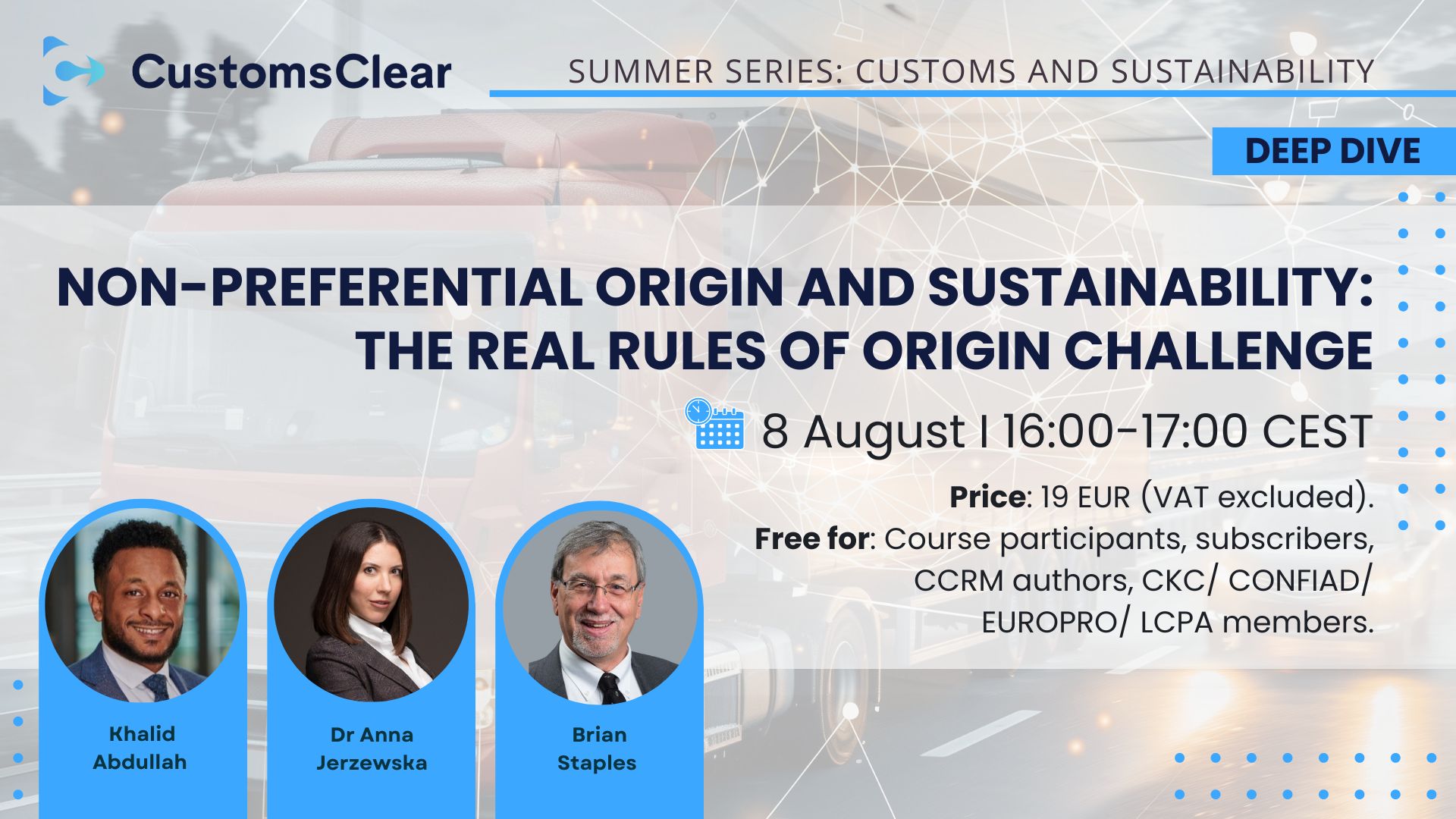
Preferential rules of origin are one of the most complex areas of customs. This type of origin is used to check whether a product is eligible for a reduced tariff under a trade agreement such as the CPTPP, UMSCA, the TCA and many more.
But for many companies, where the big savings or costs actually lie is non-preferential origin. This type of origin is used for many trade policy measures recently applied by the EU or US, such as anti-dumping and countervailing duties, quotas, trade embargoes, certain types of sanctions and other quantitative restrictions.
While tariffs rarely exceed 20% of the value of the product, anti-dumping duties can be 100%, 200% and upwards. So it’s often much more important to correctly determine a product’s non-preferential origin.
Many of the policies and measures introduced as part of the EU’s broadly defined sustainability agenda rely on non-preferential origin. For CBAM, Deforestation Regulation or anti-subsidy tariffs on Chinese EVs, whether or not the product is subject to the requirements under these regulations will depend on its non-preferential origin.
Unfortunately, non-preferential origin can often be more difficult to determine than preferential origin. This is because non-preferential rules of origin are not as well defined and leave plenty of room for interpretation.
The second session of our Summer Series will focus on the most common difficulties and challenges when it comes to determining non-preferential origin. And how should companies prepare for the potential challenges to the on-preferential origin of their products by national customs authorities?
This webinar will seek to:
- Provide a brief overview of some of the sustainability and trade defence policies that rely on non-preferential origin;
- Explain where non-preferential rules of origin come from and what are their main principles;
- Showcase why non-preferential origin can be so difficult to determine;
- Present of practical case studies and examples;
- Provide advice for businesses and customs professionals when it comes to working with non-preferential origin.
Speakers
Brian Staples
Brian Staples is President of Trade Facilitation Services (TFS: www.tradefacilitation.ca) an Ottawa-based consulting group, and has been providing a wide range of multinational clients with effective market access strategies and solutions for over 30 years. TFS services include technical trade fundamentals with a particular focus on rules of origin. In addition to resolving trade problems for private sector clients, he has also worked on a wide range of trade, customs and origin related technical assistance and capacity building development projects around the world.
Khalid Abdullah
Khalid is a Senior Manager at KPMG Meijburg & Co and specializes in VAT, excise duties, consumption tax, environmental taxes, customs and trade law. He is also involved with related cross‑border taxes and charges, such as the Carbon Border Adjustment Mechanism (CBAM). Khalid has extensive experience in providing strategic advice, helping with compliance, dispute resolution and litigating for companies involved with cross-border commercial activities.
Dr Anna Jerzewska
Anna is the Chief Content Officer at CustomsClear. Anna was the subject matter expert on the Rules of Origin Facilitator tool -joint ITC, WTO and WCO project. Her definition of origin terms is currently used by a number of official platforms in many developing countries. Anna has also provided training on the topic across the EU, the UK, South America, Africa and Asia. She’s a former customs consultant for PwC, EY and KPMG in London and a former Deputy Director at HMRC, UK customs authority. Anna holds a PhD in free trade agreements and rules of origin in East Asia.
Price
The price is 19 Eur. Free for:
- Subscribers to Individual or Team plan;
- Participants of the ‘Customs clearance and trade compliance in the EU’ online course;
- Authors contributing to the ‘Customs Compliance & Risk Management’ journal;
- Members of CKC, CONFIAD, EUROPRO, LCPA.
Contact us
If you need further information or have any questions, please feel free to contact us at info@customsclear.net
